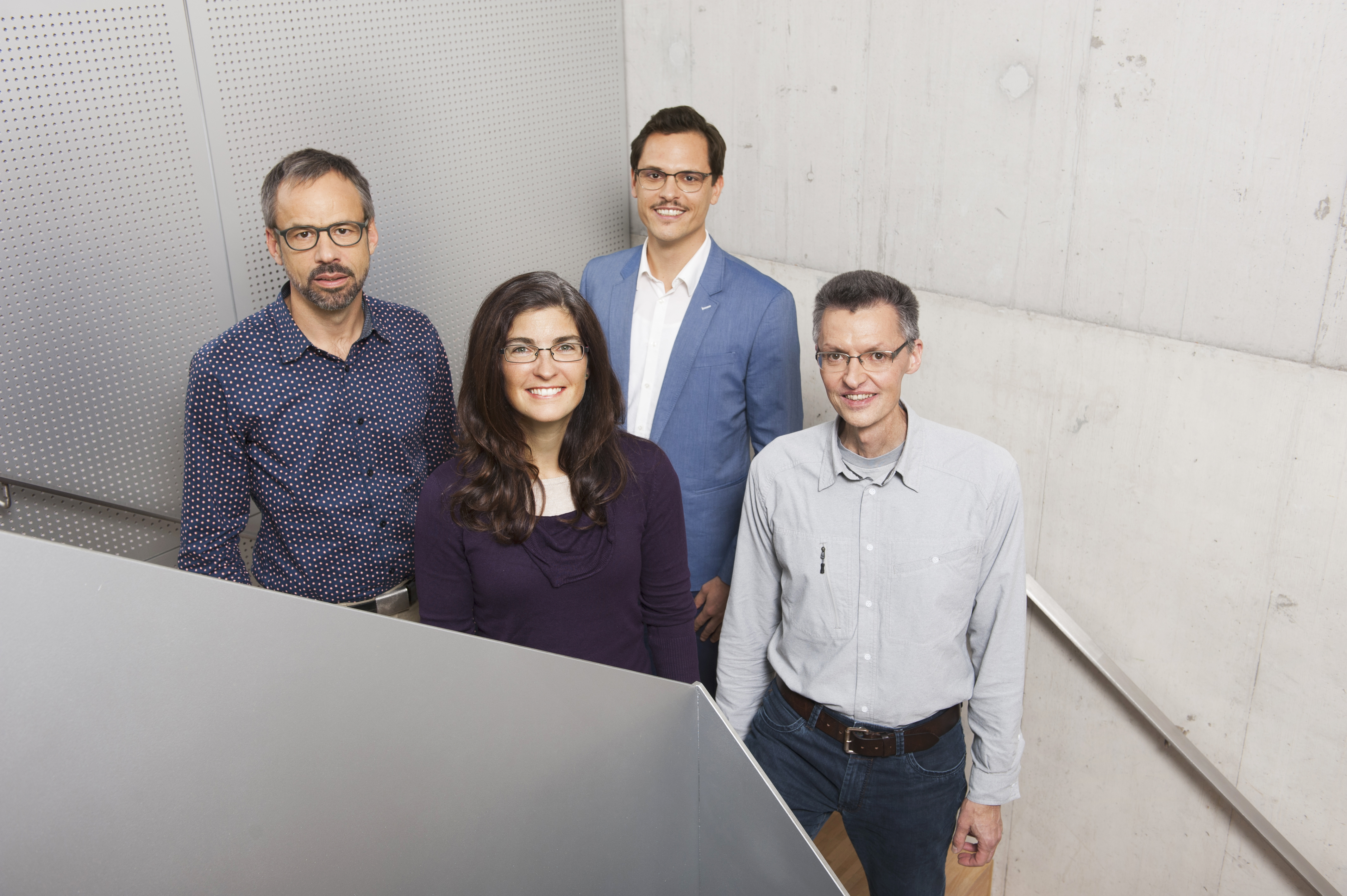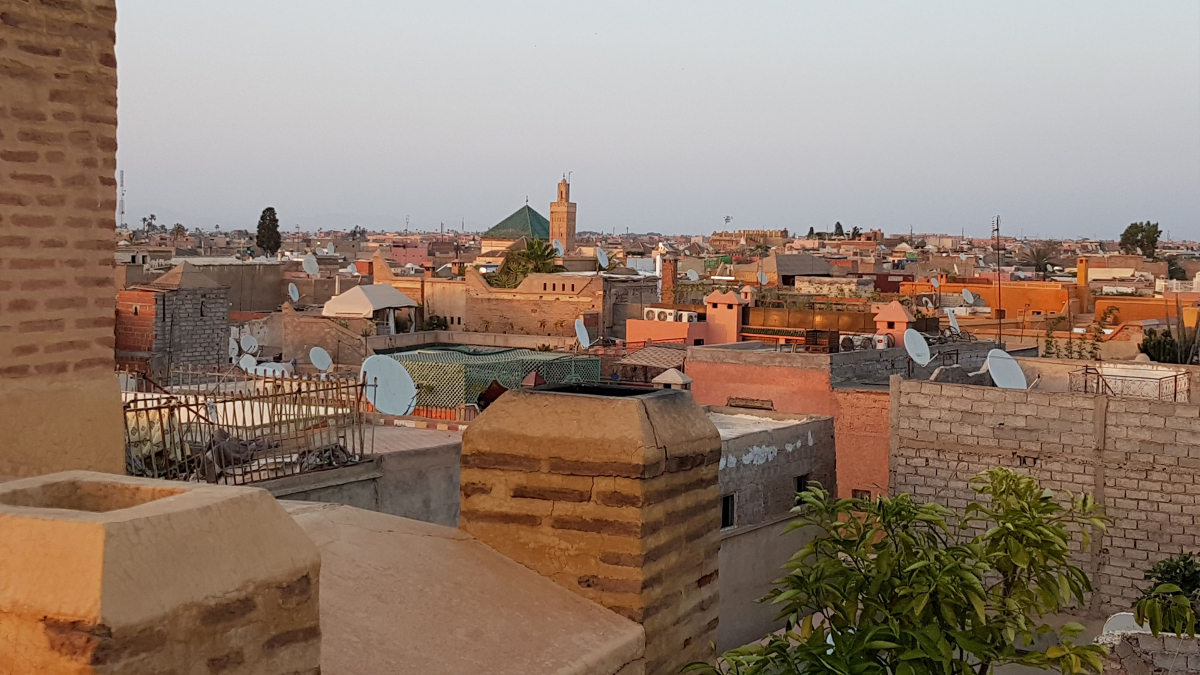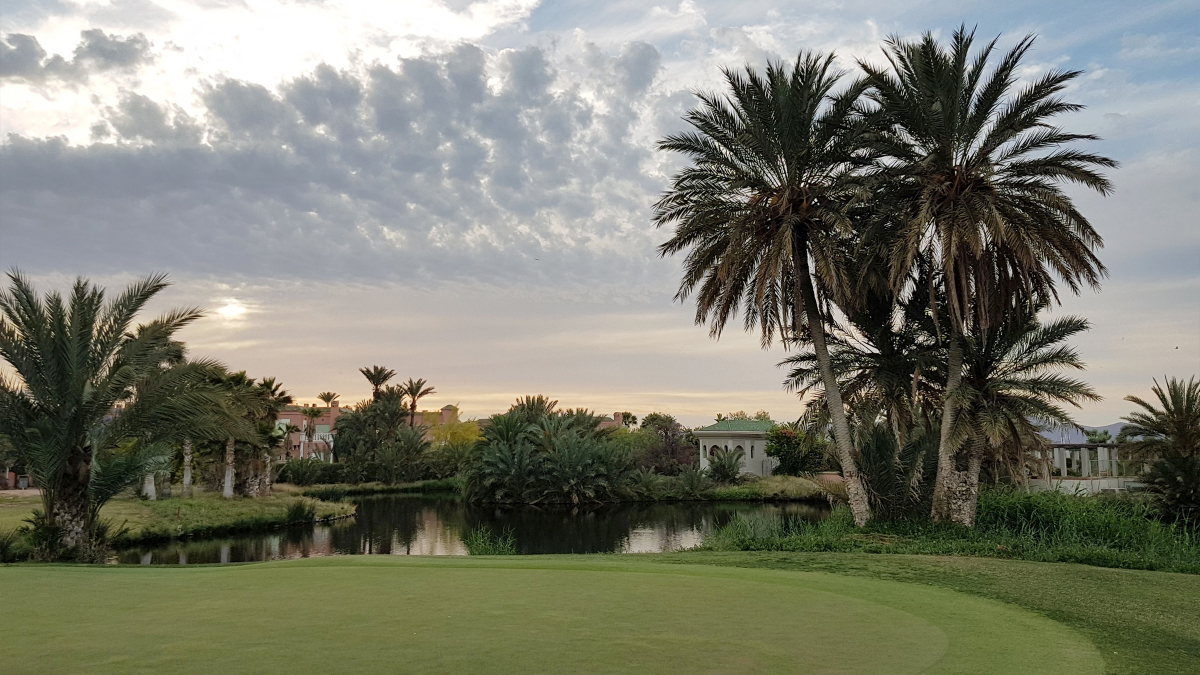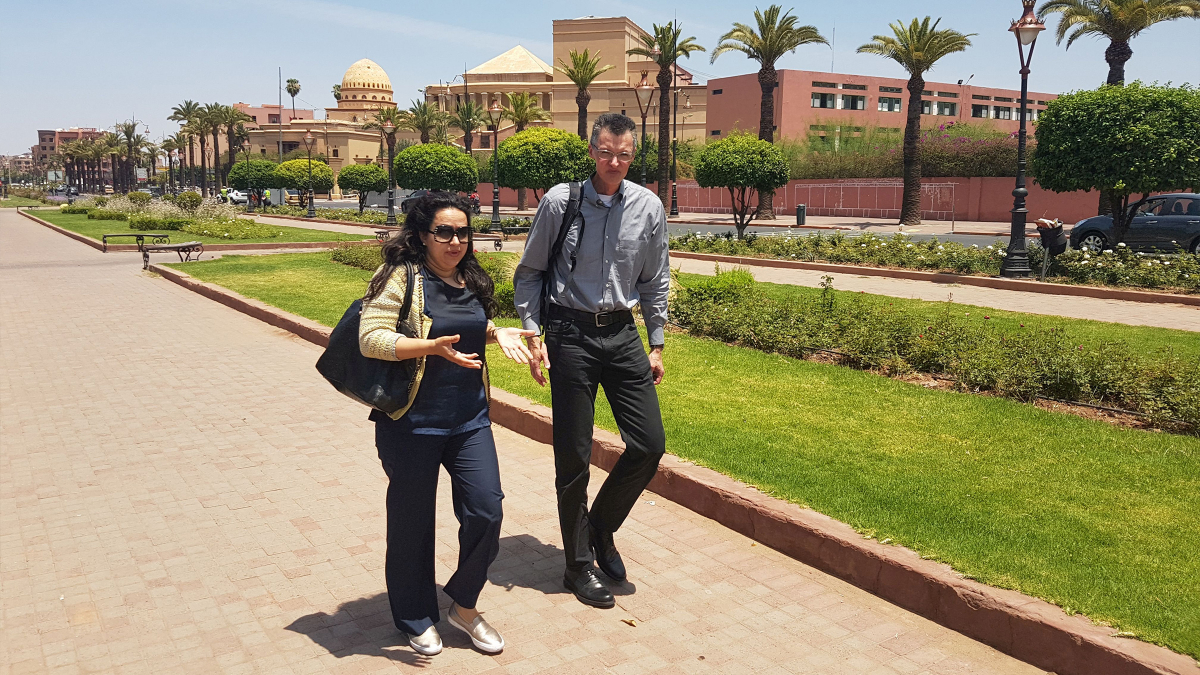How treated wastewater helps golf courses in Marrakech
Along with climate change, urbanization and increasing demands for water in the manufacturing and tourism sectors have contributed to the growing problem of water scarcity in many Moroccan cities - various of them being located in basins where also agriculture is a major water consumer. As part of the Water Scarce Cities Initiative launched by the World Bank, and in collaboration with Moroccan authorities, we are currently examining the extent to which integrated water resources management can help deal with water scarcity.
In areas that experience flooding, large volumes of water can be gathered, stored and reused to irrigate fields or replenish aquifers. And golf courses can be watered using treated wastewater from homes, hotels and factories. Making use of and combining such measures in a systematic manner is an essential part of integrated water resources management (IWRM). IWRM is an empirical concept which evolved from the on-the-ground experience of practitioners. Although many parts of the concept have been around for several decades, it was not until after the World Summit on Sustainable Development in 1992 in Rio that the concept was made the object of extensive discussions as to what it means in practice. The Global Water Partnership's definition of IWRM is widely accepted. It states: «IWRM is a process which promotes the co-ordinated development and management of water, land and related resources, in order to maximize the resultant economic and social welfare in an equitable manner without compromising the sustainability of vital ecosystems». As part of the Water Scarce Cities Initiative launched by the World Bank, and in collaboration with Moroccan authorities, we’re currently examining the extent to which integrated water resources management can help deal with water scarcity in Moroccan cities
To what extent can integrated water resources management help deal with water scarcity in Moroccan cities?
Challenges in 20 Moroccan cities
We began our examination by carrying out a survey of the major water-related challenges faced by 20 Moroccan cities. These challenges include rapid urbanization, water scarcity and flooding. Given that effective IWRM is extensively dependent on institutional support and coordination, we have also examined the legal framework in Morocco, the roles played by government agencies, local municipalities and water supply utilities and the ways in which these different organizations coordinate their efforts.
Progress in Marrakech
We are elaborating a detailed study of the approach the city of Marrakech takes to water and wastewater management. Marrakech has already implemented a number of IWRM measures. For instance, the city makes use of treated wastewater to irrigate its golf courses, an option that is better than using groundwater or water that has been treated to drinking water standards.
We are working with the World Bank and the Moroccan water sector to identify IWRM solutions in Marrakech, solutions that will help the country meet future challenges. So far we have examined more than 20 measures in terms of their technical, operational and financial feasibility, as well as their expected socioeconomic benefits. In addition to our interdisciplinary team, we receive valuable support from our local partners, including five Moroccan specialists who are well-acquainted with the subject of IWRM and local affairs.
In-depth analysis thanks to our «Quick Scan» questionnaire
Will legislative changes be necessary to ensure the effectiveness of IWRM solutions? Will adjustments need to be made in the way in which government agencies cooperate with suppliers? Are adequate financial resources available? Our «Quick Scan» questionnaire allows cities to evaluate their IWRM performance and to identify the biggest challenges they face when it comes to water supply, wastewater disposal and drainage. In particular, the questionnaire allows the cities to rate their water supply, infrastructure management, commercial efficiency, distribution-area coverage, enterprise management, compliance with environmental standards, energy Efficiency and system resilience.

Project team (from left to right):
Reto Bühler has worked to promote the sustainable use of water for more than twenty years. He has helped to complete numerous technical and institutional drinking water and wastewater projects around the world. At EBP, Reto heads up our Drinking Water and Wastewater Team. A direct beneficiary of his water-protection accomplishments, Reto is an avid swimmer who naturally prefers to swim in clean rivers and lakes.
As an economist and environmental resource manager, Denise Fussen concerns herself with climate change, its economic impact and effective institutional responses. In the context of various national and international projects, Denise, who heads up our Climate Protection and Adaptation Team, has helped to develop tailor-made solutions for public and private enterprises. In her free time, Denise is a keen outdoor sportswoman and sings as a member of a choir.
Risch Tratschin is our expert when it comes to institutional analyses, project evaluations and field studies relating to integrated water resource management, water source protection and cooperative development projects. A Swiss national from the Rhaetian Alps region, Risch loves bicycling, the cultural scene in cities, and the mountains in the Engadin Valley.
Whether the matter at hand is integrated water resource management, the supply of drinking water, climate change, flooding, water scarcity or computer simulations, Martin Rauber can be relied on for invaluable support in many areas relating to water and the aquatic environment. The geographical scope of his services extends from Switzerland to virtually any other location on the planet. The Balkans, Central Asia, Southeast Asia, North Africa – there’s no place that’s too far off the beaten path for Martin.


